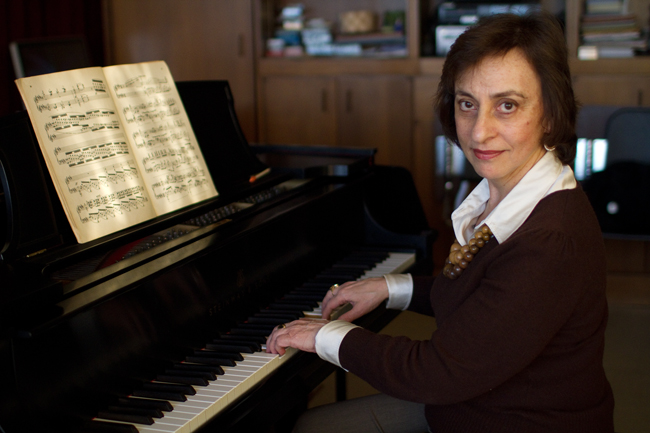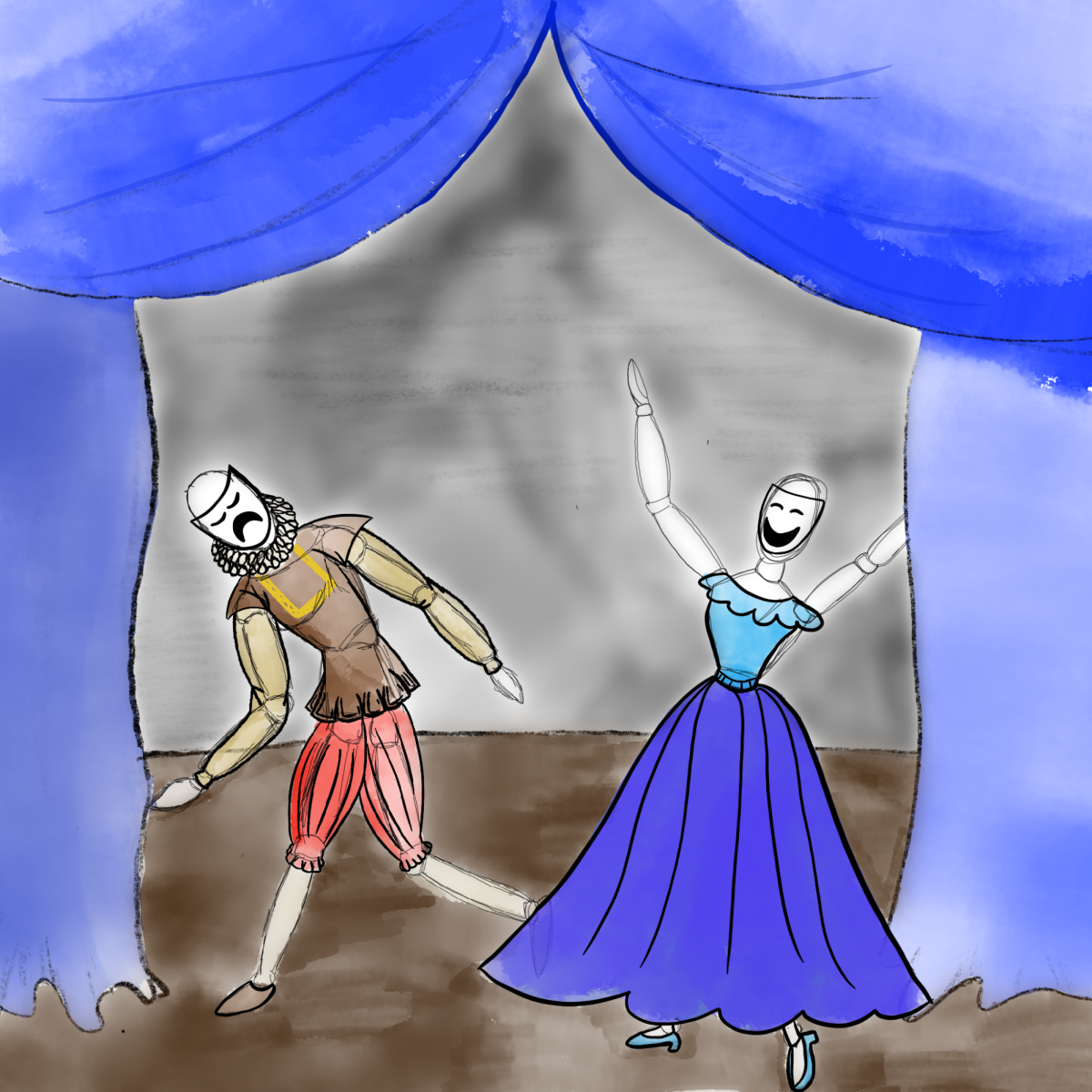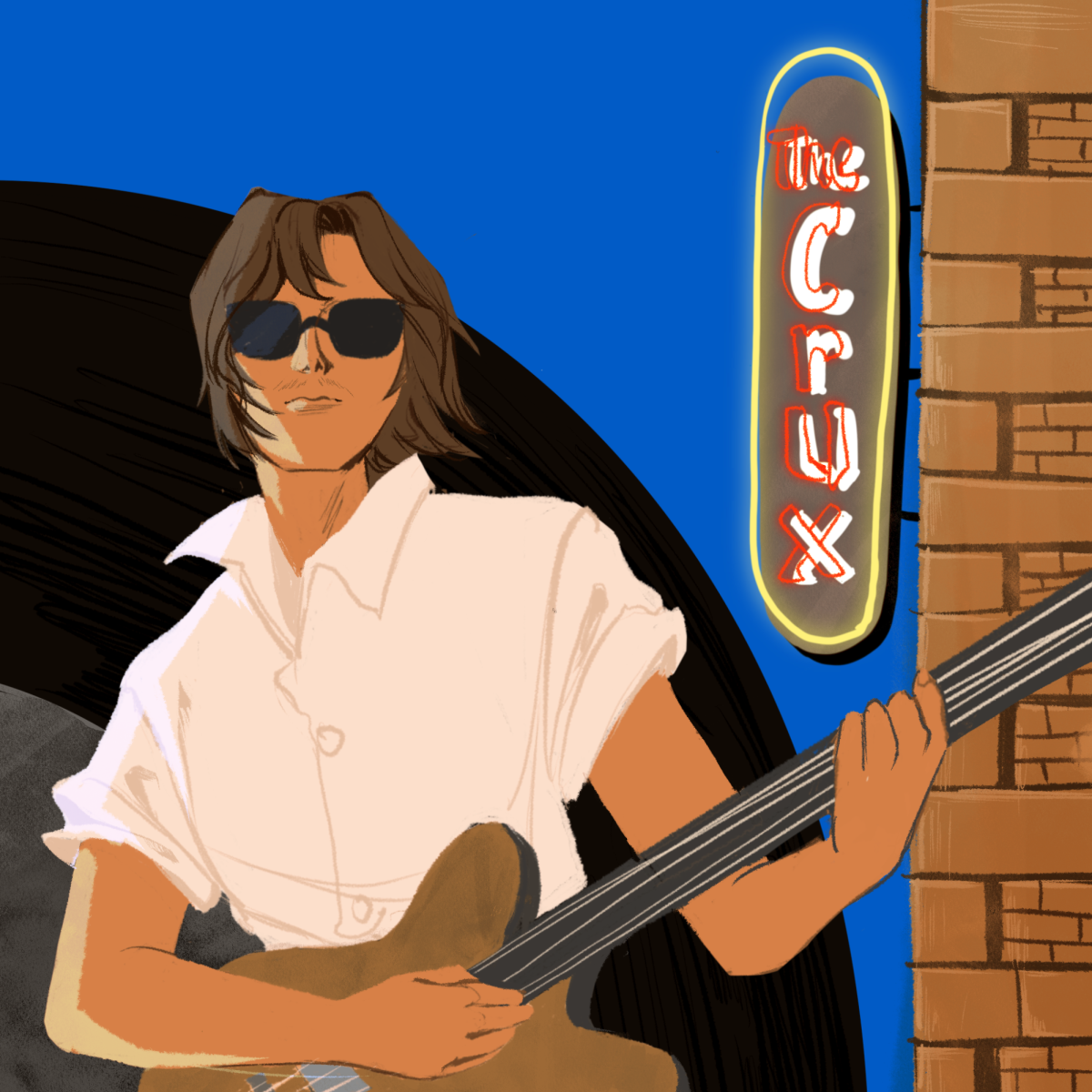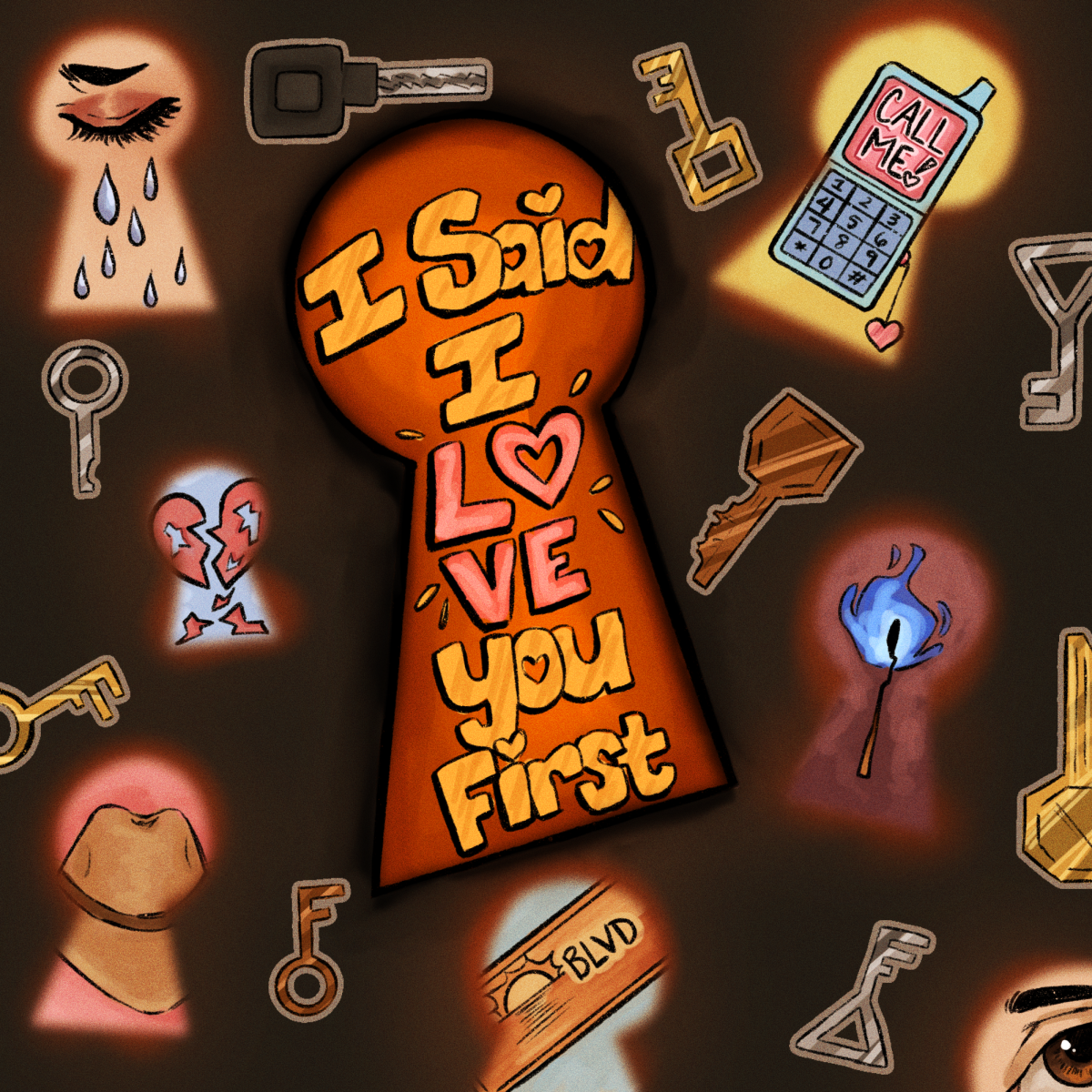In the halls of the Butler School of Music, muffled melodies barely escape the soundproofed practice rooms as students diligently rehearse on an array of instruments. But it is not only students working on breakthrough performances; professor Sophia Gilmson has also been hard at work on a project of her own. The 20-year veteran of the music school recently released her own recordings of the Bach Goldberg Variations on both the piano and the two-manual harpsichord. A concept, which, quite to her surprise, is the first of its kind.
“I love Bach’s music, and I credit my first piano instructor for that,” Gilmson said. “A question I had was, ‘How would Bach himself would have played this; how would he have wanted this piece to sound?’ Because we’re used to playing it on a different instrument, the piano, than what it was written for. Some of the variations in the piece specifically call for a two-manual harpsichord.”
The Russian-born pianist has a deep-rooted interest in music dating back to her childhood. Gilmson graduated from the Lenigrad (now St. Petersburg) Conservatory, a renowned music school, and came to America in 1976.
“I started taking piano lessons at the age of six,” Gilmson said. “My parents did not intend to make me a musician, they just wanted me to have lessons. I loved it – somehow from the beginning I just wanted to do it.”
Her project began in 2001, playing the Bach Goldberg Variations back-to-back on the piano and the two-manual harpsichord. Gilmson wanted to present the piece as it is played in modern times, on the piano, and on the more antiquated two-manual harpsichord, the instrument on which Bach had specified that some of the movements be played.
“In 2001 I performed in Jessen, a relatively small hall because the harpsichord doesn’t have a particularly mighty sound,” she said. “We didn’t know at the time what kind of response we would have, and wow, we had to turn away about twice as many people as we could seat in the hall. We had no idea of the response we would have, but obviously there was a great interest in the project.”
After the initial performance, friends and colleagues encouraged Gilmson to take her work to broader audiences. After touring the United States and Europe, Andy Murphy, chief recording engineer for the Butler School of Music, approached her to record and release her performance. Gilmson considers Murphy the “co-author” of her release.
“I approached her after her performances and encouraged her to do a recording,” Murphy said. “It definitely took some time, but she was very committed, so eventually we got it done. We worked on and off over a two-year period, mostly between semesters and in the summer.”
To Gilmson’s surprise, she is currently the only performer to release a compilation of the piece played back-to-back on two different instruments.
“I was surprised because it seems like such an obvious idea,” she said. “There are many recordings done by harpsichordists on harpsichord; there are many wonderful performances by pianists on piano — but no one has done it on both.”
Gilmson said that the project was challenging and fulfilling to work on and hopes to highlight the differences between the two instruments, rather than make a case for one over the other.
“I hope listeners will not listen to decide which instrument is better. My hope is that they will enjoy the unique colors and expressiveness that each instrument has to offer,” Gilmson said. “When I play the piano, I have warm, beautiful, flexible musical lines that I try to bring to the harpsichord. When I play harpsichord, I have this fantastic clarity that I would like to bring to the piano. It was a mutually enriching experience.”
As far as having a preference, Gilmson doesn’t play favorites.
“I love whichever instrument I’m on at the moment,” she said with a smile.
Gilmson’s performance of the J.S. Bach Goldberg Variations is available in both CD and DVD formats on her website, as well as audio and video clips of two of the variations.
Published on February 6, 2013 as "Butler professor strikes chord".





















